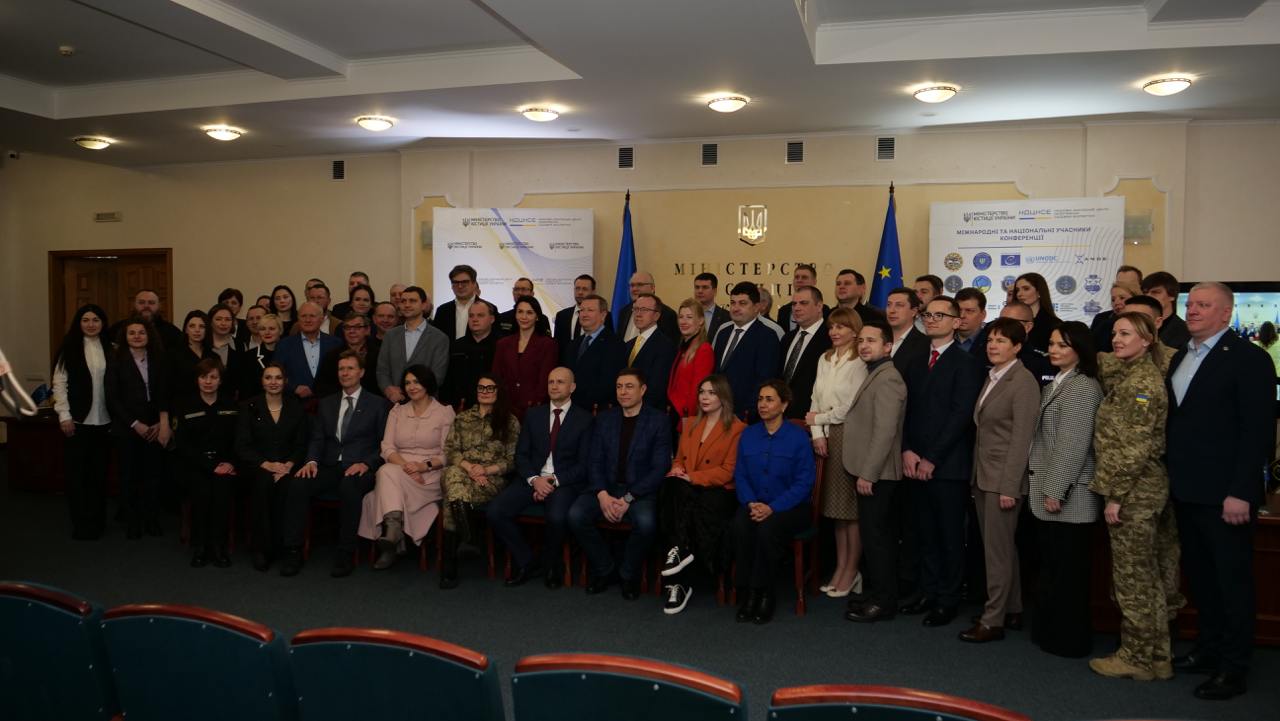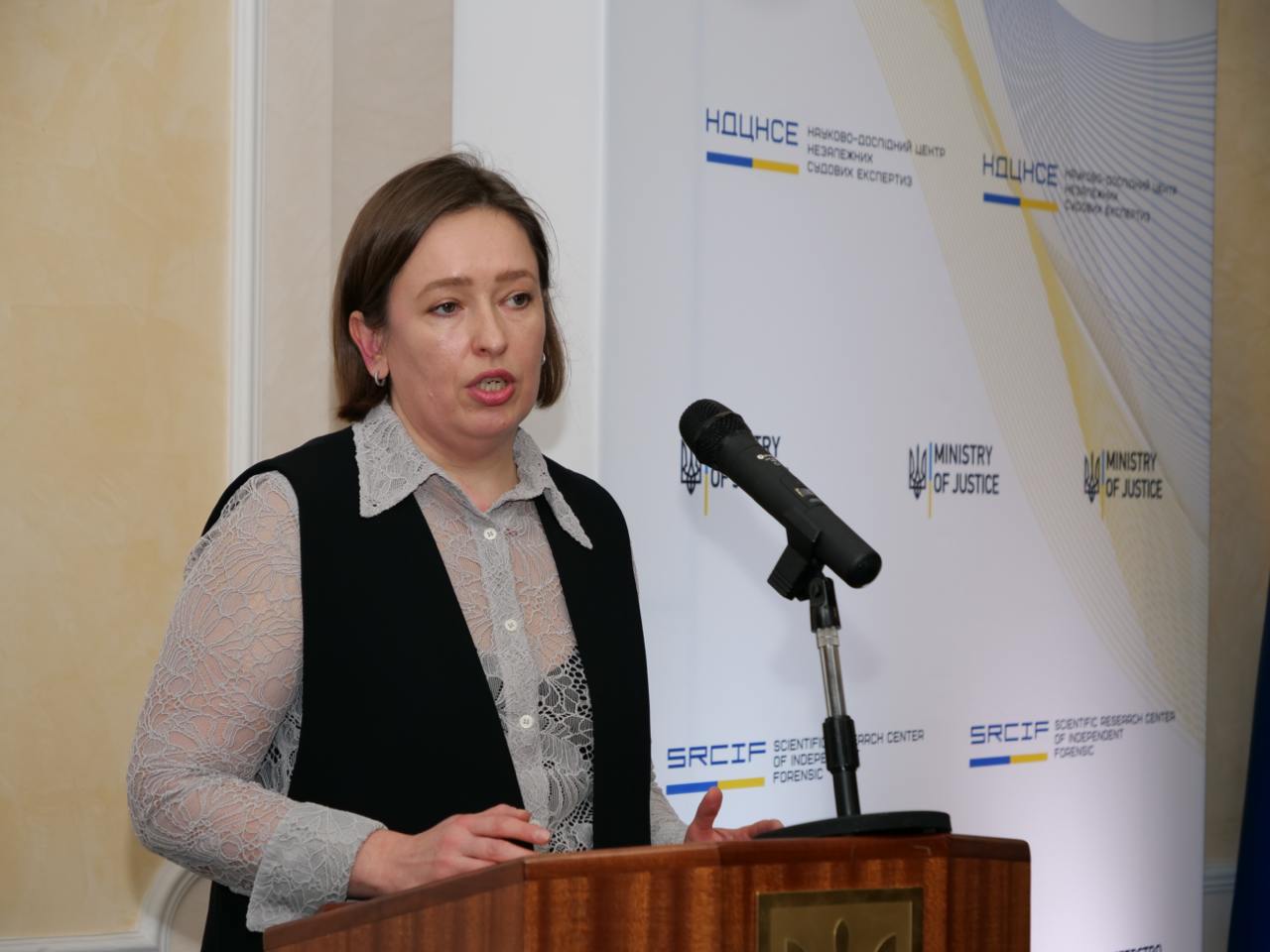Experts of EU Project Pravo-Justice Voiced Proposals for Further Reforming of Forensic Expertise in Ukraine

Forensic expertise is a key component of justice and an important element of the rule of law. In the process of Ukraine’s European integration, there is a need to harmonise the forensic expertise system with European standards. This would contribute to strengthening the independence of the judiciary, speeding up trials, and increasing people’s trust in the judicial system.
That was stated by Iryna Zharonkina, Enforcement and Protection of Property Rights Component of EU Project Pravo-Justice, at the 1st International Scientific and Practical Conference “Current Issues in the Development of the Ukrainian Forensic Expert Activity”.
“The European Union continues supporting Ukraine in implementing judicial reform. The transformation of forensic expertise is not only a means of increasing the efficiency of justice, but also an important step to strengthen citizens’ trust in the judicial system. Ukraine has a unique opportunity to create a modern, transparent and independent forensic system that would meet European standards and contribute to the development of democratic institutions,” noted Iryna Zharonkina.

In her opinion, further reform of forensic expertise shall be based on the principles of independence, transparency, accessibility; while also ensure equal opportunities for all participants to the proceedings in terms of the appointment of expertise. The improved system shall guarantee timeliness of research and compliance of the findings with international standards.
“Forensic expertise should become not only a technical tool for judges and investigators, but also an effective mechanism for protecting human rights and legal certainty,” added Iryna Zharonkina.
In turn, Pawel Rybicki, international expert of EU Project Pravo-Justice, Board Chairman of the Homeland Security Institute EFIC (Poland), presented recommendations based on the results of an analytical study on further reform of the forensic expertise sector in Ukraine. The study was conducted by experts of EU Project Pravo-Justice from June until September 2024 based on a survey of representatives of the judiciary, prosecutor's office, police, as well as providers and users of forensic expertise services.
“In Ukraine, the forensic expertise system is very fragmented, has various subordination lines leading to various institutions, and also includes a network of private laboratories. To increase its efficiency, a special body needs to be established that would be responsible for reforming the forensic expertise system and implementing the necessary innovations,” said Pavel Rybicki.
The expert also proposed expanding the network of private forensic experts. “There are, currently, only about 500 private forensic experts in Ukraine, while there are thousands of them in the public sector. At the same time, individual practitioners are often more mobile and able to respond quickly to modern challenges, rather than specialists from state laboratories,” emphasised Pawel Rybicki.
At the same time, he called for support for the community of private experts in creating a professional Association of Forensic Experts, which would represent their interests, cooperate with forensic authorities, and contribute to improving the quality of services.
“It is also necessary to introduce a transparent, unified model of disciplinary and civil liability for private experts, ensuring equal legal remedies with state experts,” said Pawel Rybicki coming up with yet another proposal.
In addition, Expert of EU Project Pravo-Justice stated that it was necessary to eliminate the monopoly of state forensic institutions on conducting certain types of research and to allow the involvement of foreign experts in conducting researches in Ukraine at the statutory level. In his opinion, such a step would contribute to the integration of our country into the European expert environment.
According to Pawel Rybicki, further steps in reforming forensic activities in Ukraine should include, in particular, the improvement of the quality of forensic research. This can be done, in particular, by implementing the ISO 17025 standard for all laboratories, creating a transparent system of certification and confirming the qualification of forensic experts. He also recommended developing a unified coordinated model for technological re-equipping of the forensic system, as well as creating a roadmap for Ukraine’s accession to European automated search and data exchange systems for police cooperation.